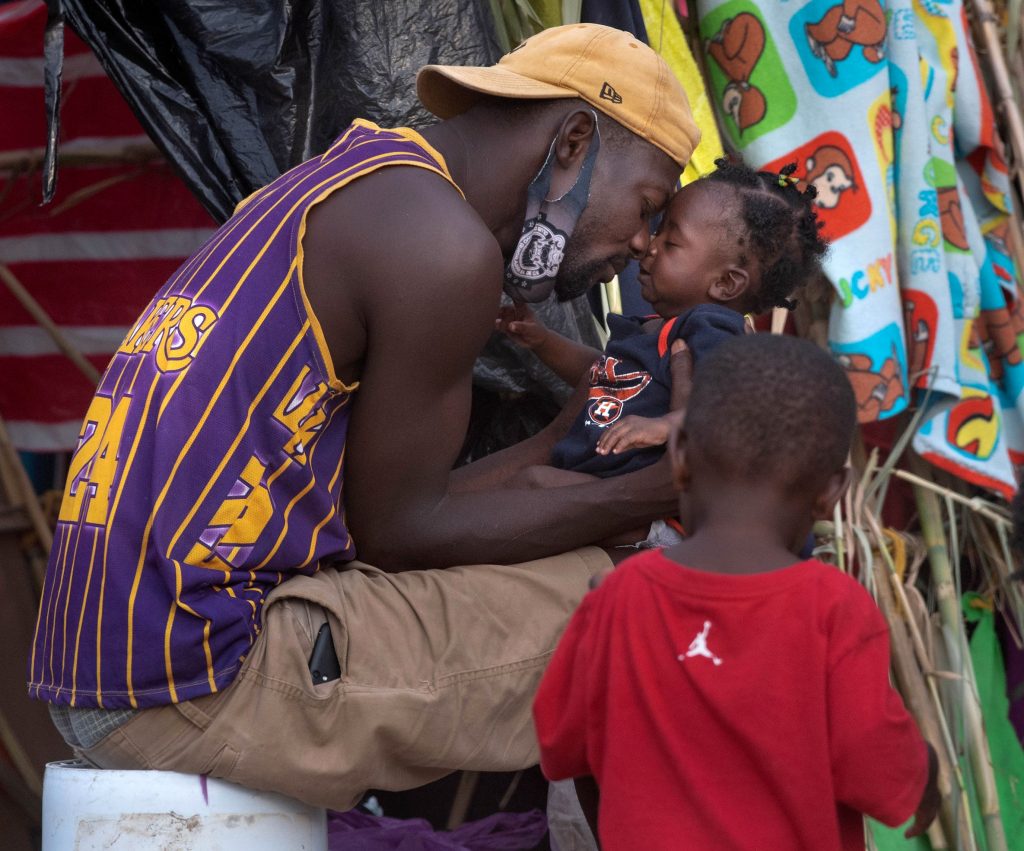Martine St. Hilaire
In 2023, Haiti experienced a mass exodus of its population, marking one of the largest migratory movements in recent history. “The Haiti Exodus of 2023 is heartbreaking. We love our country, but the conditions there have become unbearable. We’re forced to leave in search of safety and opportunity elsewhere,” said one Haitian migrant. A culmination of socio-political instability, economic hardship, natural disasters, and the lingering effects of the COVID-19 pandemic drove the exodus. This article explores the causes, consequences, and the ensuing humanitarian crisis of the Haiti Exodus of 2023.

Causes:
- Political Instability: Haiti has a long history of political turmoil, and 2023 was no exception. The assassination of President Jovenel Moïse in July 2021 plunged the country into further chaos and left a power vacuum and increased violence. Both contributed to a sense of insecurity among the population.
- Economic Hardship: The Haitian economy has been struggling for decades, plagued with high unemployment rates, widespread poverty, and limited access to basic services such as healthcare and education. The economic downturn exacerbated by the COVID-19 pandemic further worsened the situation, leaving many Haitians without the means to support themselves and their families.
- Natural Disasters: Haiti is prone to natural disasters, including hurricanes, earthquakes, and floods. In 2021, a devastating earthquake followed by Hurricane Grace exacerbated existing vulnerabilities and left thousands homeless.
- Social Unrest: Social unrest, fueled by widespread discontent with the government’s handling of various crises including corruption allegations and the lack of basic services, contributed to a sense of disillusionment among the population.
The Haitian population tried to survive, but many already felt disoriented, tired, and discouraged due to deteriorating security, rising inflation, and the worsening political environment. Haitians living their days amid organized crime, sexual violence, and unemployment, among other difficulties, is no longer an option, and many are turning their gaze to destinations such as Mexico, Canada, and the United States. More than 100,000 Haitians arrived in the US last year.
Consequences:
- Mass Migration: Faced with the prospect of continued instability, economic hardship, and a lack of basic necessities, hundreds of thousands of Haitians embarked on perilous journeys in search of safety and opportunities elsewhere. Many headed to neighboring countries such as the Dominican Republic, the United States, and other Caribbean nations.
- Brain Drain: The exodus of skilled professionals, including doctors, nurses, teachers, and engineers, further depleted Haiti’s already fragile human capital, hindering the country’s ability to rebuild and recover from its myriad challenges.
- International Response: The Haiti Exodus of 2023 drew international attention and prompted responses from neighboring countries, international organizations, and donor governments. Efforts were made to provide humanitarian assistance, facilitate resettlement programs, and address the root causes of migration through diplomatic channels.
Haiti’s Humanitarian Crisis
Haiti, the Caribbean nation once known as the “Pearl of the Antilles,” is currently facing one of its severest humanitarian crises in recent history. The mass exodus precipitated a humanitarian crisis marked by overcrowded shelters, strained resources, and inadequate access to essential services for both those leaving Haiti and the communities hosting them. “Leaving Haiti was never an easy decision, but we had no choice. We dream of returning one day, but for now, our focus is on surviving and building a better life wherever we can,” said a participant in the mass exodus. Humanitarian organizations struggled to meet the needs of the growing displaced population, exacerbating the already dire situation.

“Leaving Haiti was never an easy decision, but we had no choice. We dream of returning one day, but for now, our focus is on surviving and building a better life wherever we can,”
Haiti’s humanitarian crisis requires urgent international aid and action to address the immediate needs of the population and support long-term recovery and resilience-building efforts. The international community must prioritize humanitarian assistance, including food aid, clean water, healthcare, and shelter, to alleviate the suffering of those most affected by the crisis.
Additionally, there is a pressing need for greater investment in Haiti’s infrastructure, healthcare system, education, and economy to build resilience and mitigate the impact of future crises. This requires coordinated efforts between governments, international organizations, non-governmental organizations, and the private sector to ensure that aid reaches those in need and is used effectively to address the root causes of Haiti’s humanitarian crisis.
Moreover, efforts to support democratic governance, strengthen institutions, and promote accountability are essential to address the underlying political instability and foster sustainable development in Haiti. The Haitian people deserve a future free from poverty, violence, and uncertainty, and it is incumbent upon the international community to stand in solidarity with them and provide the support they need to rebuild their lives and their country.
Ultimately, the Haiti Exodus of 2023 underscored the urgent need for comprehensive and sustainable solutions to address the underlying issues plaguing the country. “The Exodus has torn families apart and shattered communities. We pray for strength and resilience as we navigate this uncertain journey away from home,” said a concerned Haitian native.
While immediate humanitarian aid is essential to alleviate the suffering of those affected by the crisis, long-term investments in governance, infrastructure, education, and economic development are necessary to break the cycle of poverty and instability in Haiti. As the international community grapples with the fallout from the exodus, it is imperative to prioritize the well-being and rights of the Haitian people and work towards building a more resilient and prosperous future for the country and its citizens.
Haitians are grateful for the support and solidarity of those who welcome them in their time of need. Despite the challenges, Haitians remain hopeful for a brighter tomorrow.


